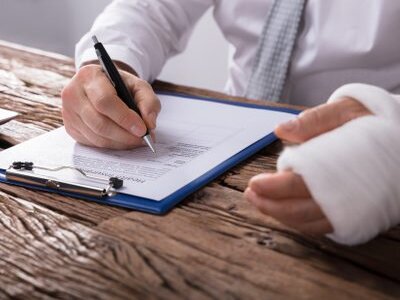- Workers' Compensation
If you are a maritime worker, the maritime industry exposes you to different injuries, especially in Florida. Florida’s naval industry is one of the biggest in the country, contributing a large amount of the nation’s external trade volume. With this scale of activity comes a corresponding need for safety while on the job.
Whatever the maritime industry injuries lack in frequency, they make up for in severity. Fortunately, some laws protect the rights of maritime workers to receive compensation when these accidents occur. If you are involved in a marine workplace injury, a Florida workers’ compensation attorney is your best bet to enforce your entitlement to compensation.
This article focuses on the causes of maritime workplace injuries, the rights available to the workers, and the role of injury right lawyers in securing compensation. If you need legal advice or representation concerning a maritime injury in Florida, you can reach out to us at Work Injury Rights.
Causes of Workplace Injuries in the Florida Maritime Industry
Just like in every other industry, maritime workplace accidents are inevitable. Unfortunately, the best that industry players and regulators can do is mitigate the rate of their occurrence. The most prevalent causes of workplace accidents in the maritime industry are discussed below.
-
Slips and Trips
Several activities in the maritime workplace expose workers to slip and trip accidents. For example, water, oils, and other lubricants on smooth floors can cause slips, while numerous equipment and machine parts can cause falls.
-
Falling on Platforms
Marine workers can only perform some construction and repair activities from heights. As a result, workers may fall from elevations and stairs onto hard platforms leading to severe wounds. Common examples of these injuries are traumatic brain injury, spinal cord injury, concussion, severed limbs, cuts, bruises, or death.
-
Falling Overboard
Maritime workers could fall overboard and require rescuing from drowning. Sometimes, rescue teams may take a while to coordinate themselves and swing into action.
-
Flying or Falling Objects
Many objects can fly or fall off their handles while operations are in progress. The sudden and heavy gushes of wind expected in the offshore environment may also contribute. The impact of these flying or falling objects could be quite severe. Materials, equipment, and machine parts can cause brain injury, concussions, scarring, cuts, and lacerations when they come in forceful contact with maritime workers.
-
Exposure to Harmful Chemicals and Extreme Temperatures
Exposure to toxic chemicals can lead to severe lung damage and respiratory challenges. Maritime workers may also face the risk of exposure to extreme heat or cold and suffer excessive sweating from high humidity. Some workers have to work in hot confined spaces and engine rooms, leading to dehydration, dizziness, unconsciousness, or even death.
-
Electrocution, Fires, and Explosions
Electrocution can result from exposed wires, faulty electrical setups, and inappropriate handling of welding equipment. Fire outbreaks and explosions on vessels, oil rigs, crude tankers also cause devastating injuries like a varying degree of burns and traumatic brain injury. They may also result in fatalities.
-
Machinery Accidents
Faulty machinery and equipment may cause injury to the operators. For example, cranes may swing due to defects in their wires or winches or a mistake from an inexperienced or negligent operator. In addition, some equipment and machines may be poorly built and badly designed, increasing the risk of injuries.
What Rights Do Florida Maritime Workers Have?
Florida maritime/offshore workers enjoy the protection of the Jones Act and the Outer Continental Shelf Lands Act (OCSLA). Congress enacted these laws to emphasize the rights of maritime workers to no-fault benefits. “No-fault benefits” means that an injured worker does not have to prove that their employer is responsible for their injury to receive compensation. In addition to the no-fault benefits, injured workers can also sue specific parties such as employers, the owners of vessels where accidents occurred, colleagues, and equipment manufacturers.
Get the Help of Experienced Maritime Workers’ Comp Lawyers
Employers and their insurance companies are not always eager to compensate injured workers. Even when they decide to, they may offer less than satisfactory amounts. That is why you need to hire an experienced Florida workers’ compensation lawyer to represent you and make the journey smoother and more successful.
At Work Injury Rights, we will make sure you don’t get exploited. We will help you investigate the incident, negotiate your compensation, and file a lawsuit if it comes to that. Contact us today for a free case review with one of our experienced lawyers. We work on a contingency fee basis.












